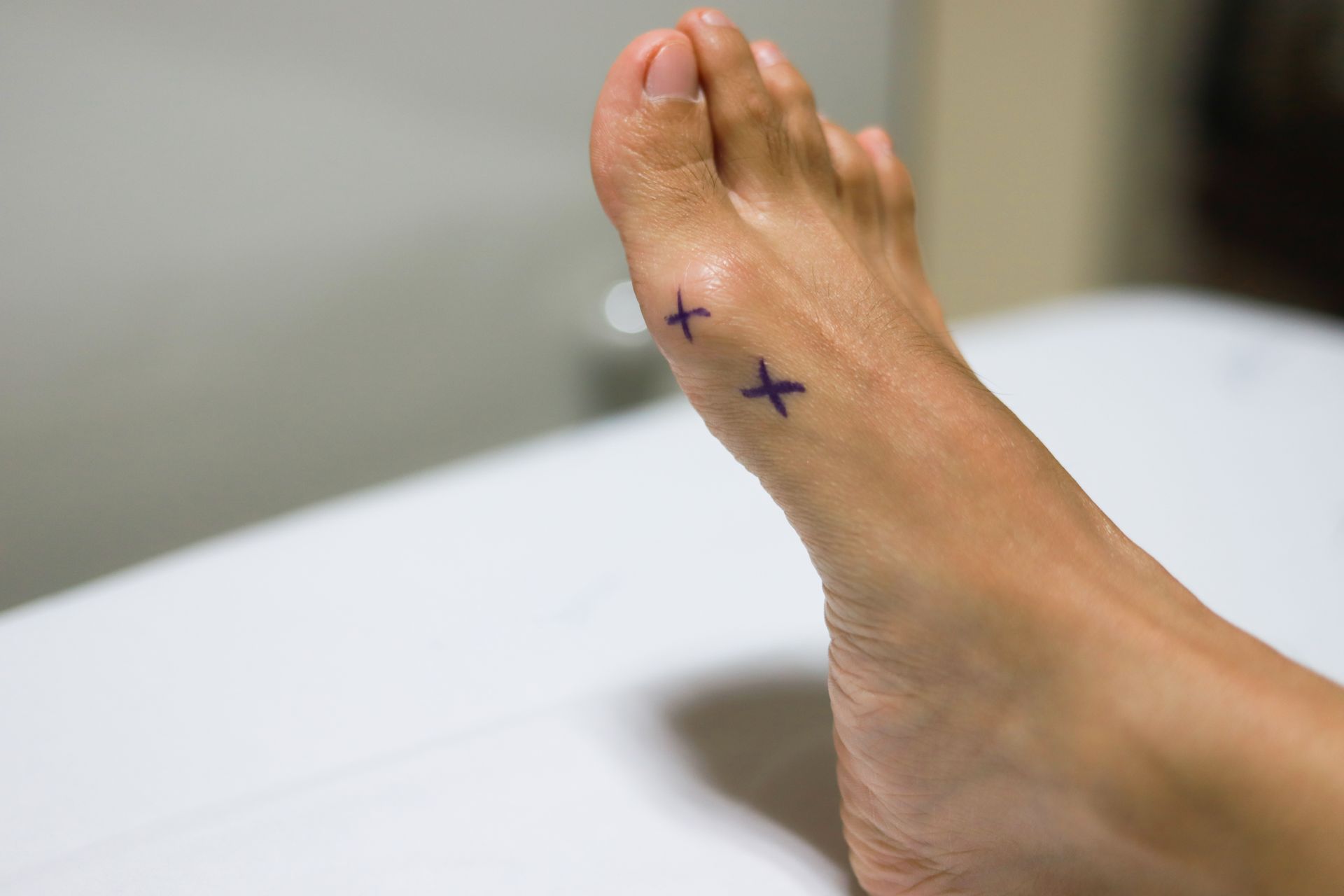Baton Rouge Foot Doctor: Why is a Diabetic Foot Exam Important?
The most important reason for a diabetic foot exam is prevention. Diabetes is associated with causing a number of problems in the body. Diabetic foot problems can be particularly dangerous, sometimes leading to infections and even amputations. The good news is that many of the conditions that lead to diabetic foot problems can be treated and even prevented when they are identified early.
What is a diabetic foot exam?
A diabetic foot exam typically involves a few key components.
Inspection from a Podiatrist
When patient ages, poor vision and stiff joints can make it difficult to visually inspect the bottom of their feet and in between their toes. Small cracks in the skin, calluses, and blisters can start very minor and develop into bigger problems. When these minor conditions are neglected, they can become a source of a bacterial infection or a breakdown in the skin called a diabetic foot ulcer. Periodic visits with a podiatrist can help identify these minor problems and treat them before they worsen.
Blood Circulation in the Foot
Another frequent cause of diabetic foot problems is inadequate blood flow to the feet or toes. If a patient doesn’t have adequate blood flow then healing minor conditions becomes more challenging. During a diabetic foot exam, the pulses in a patient’s foot are checked and the refill time at the toes is checked as well. When blood flow is noticed to be compromised or worsening specialized tests can be ordered and sometimes a referral to a vascular surgeon is necessary.
Neuropathy in the foot
Neuropathy is the loss of part or all of the feeling in a patient’s feet. Not everyone with diabetes develops neuropathy but many of them do. Often patients do not even realize that they have neuropathy because it doesn’t always hurt. Some patients with neuropathy develop burning, tingling, and numbness in their feet and legs. Neuropathy can be dangerous because a patient can suffer a minor injury or even a puncture wound without knowing. When these are neglected they can develop into more serious problems.
Diabetes is a complex disease with many impacts on the body. Diabetic foot problems are common and can be quite dangerous. The good news is that many of these problems can be identified and treated with close podiatric follow-up. It is important to start with an annual diabetic foot exam and progress to more frequent follow-ups if needed.


